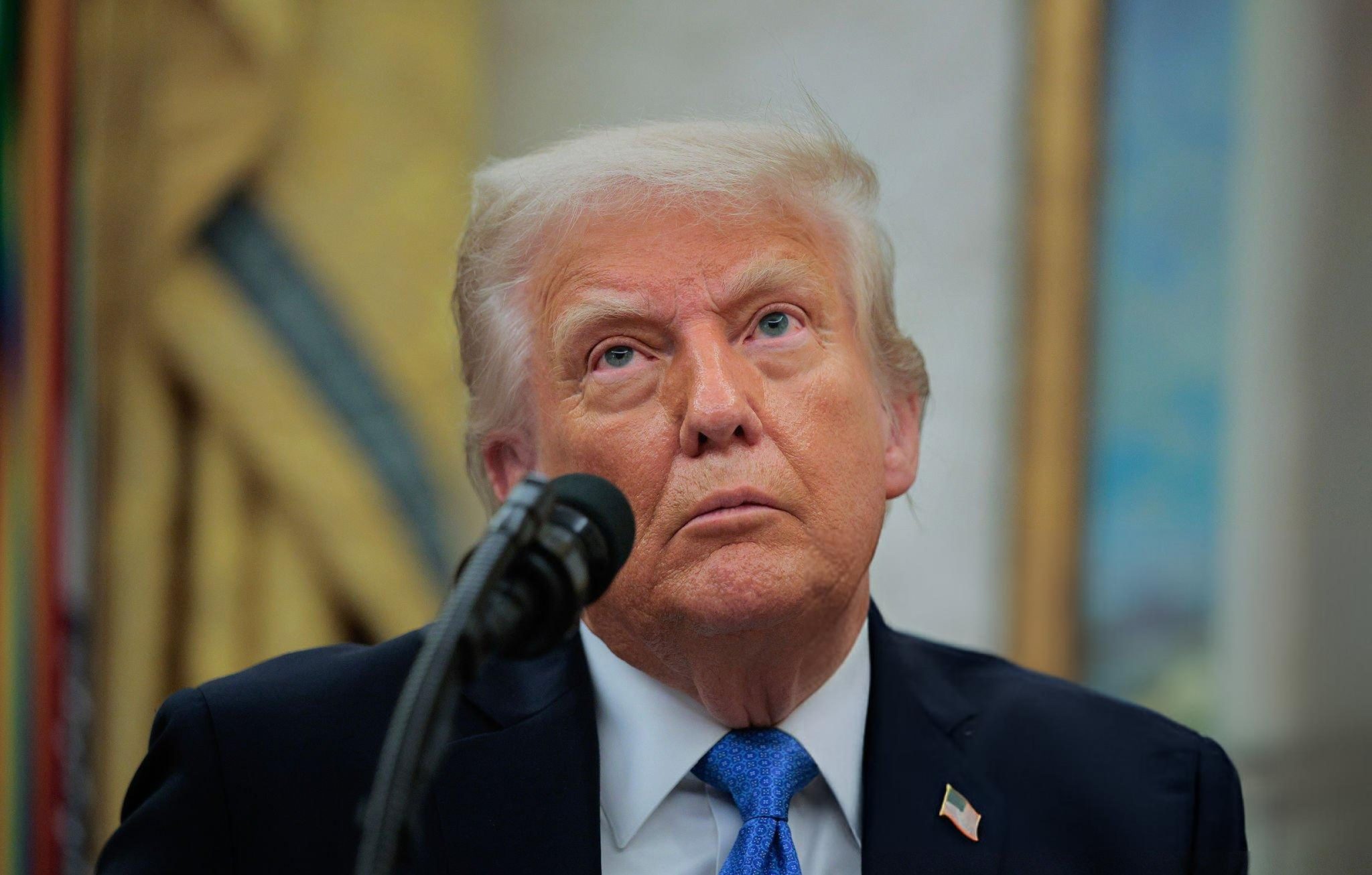Donald Trump has called on the United Kingdom to scrap its reliance on wind energy and instead pursue expanded oil drilling in the North Sea, claiming such a move would dramatically reduce the country’s energy costs.
Writing on his social media platform, Truth Social, the US President took aim at the UK’s renewable energy strategy, urging Prime Minister Sir Keir Starmer to shift direction and invest in fossil fuel extraction. Trump’s remarks come as part of his broader reflections on the new UK-US trade agreement, which he described as “working out well for all”.
Under the agreement, British exporters have been granted relief from US tariffs on cars and steel, while American agricultural firms gain greater access to UK markets — a concession that has already sparked debate among British farmers and environmental groups.
“I strongly recommend to them, however, that in order to get their energy costs down, they stop with the costly and unsightly windmills,” Trump posted. “Instead, they should incentivise modernised drilling in the North Sea, where large amounts of oil lay waiting to be taken. A century of drilling left, with Aberdeen as the hub.”
He went on to criticise the UK’s existing tax regime, describing it as outdated and a barrier to new investment in fossil fuels. “The old-fashioned tax system disincentivises drilling, rather than the opposite. UK’s Energy Costs would go WAY DOWN, and fast,” he claimed.
Trump’s remarks may not come entirely without self-interest, as he owns the Trump International Golf Links in Aberdeenshire, a region he has frequently promoted and defended against local renewable energy projects — most notably a contentious wind farm visible from his course.
The call for renewed North Sea drilling appears to have found some favour among British political figures. Conservative Party leader Kemi Badenoch, speaking during a visit to East Yorkshire, echoed Trump’s stance.
“I have been very, very vocal about drilling in the North Sea,” Badenoch said. “At the moment, energy is very expensive. We should be exploiting our natural resources. This is what worries me — that industry is dying under Labour, and we have to save it.”
Badenoch drew parallels between the energy and fishing sectors, both of which she described as “dying” under the current Labour government. Her comments suggest energy policy may become a growing point of contention as Westminster gears up for what many expect to be a bruising general election campaign.
Meanwhile, Trump also stirred fresh tensions with the European Union, threatening to impose a 50% tariff on all EU imports unless negotiations progress. He expressed frustration with what he views as a lack of movement in trade talks, despite EU proposals to reduce tariffs to zero on both sides.
“Our discussions with them are going nowhere!” Trump wrote. “Therefore, I am recommending a straight 50% Tariff on the European Union, starting on 1 June 2025. There is no tariff if the product is built or manufactured in the United States.”
The US-UK partnership was further reinforced during a diplomatic meeting at Number 10, where Trump’s ambassador to the UK, Warren Stephens, held talks with Sir Keir Starmer. The visit, which lasted around 40 minutes, was said to cover a range of shared interests including trade, defence, and global security.
“Today’s visit provided an opportunity to convey the priorities of the Trump administration, which includes maximising the US-UK partnership to advance our shared interests,” said a US embassy spokesperson.
Following the meeting, Stephens took to social media to declare that both he and President Trump remain committed to working with Sir Keir’s government “as we advance our shared interests of promoting stability and prosperity worldwide”.
Trump’s energy comments, however, are likely to provoke strong debate in Britain, where environmental groups have long opposed further North Sea drilling. With pressure mounting on the UK to meet its climate targets, the president’s fossil fuel-focused message may face resistance — not only from Labour but from a growing segment of the British public concerned about the climate crisis.






